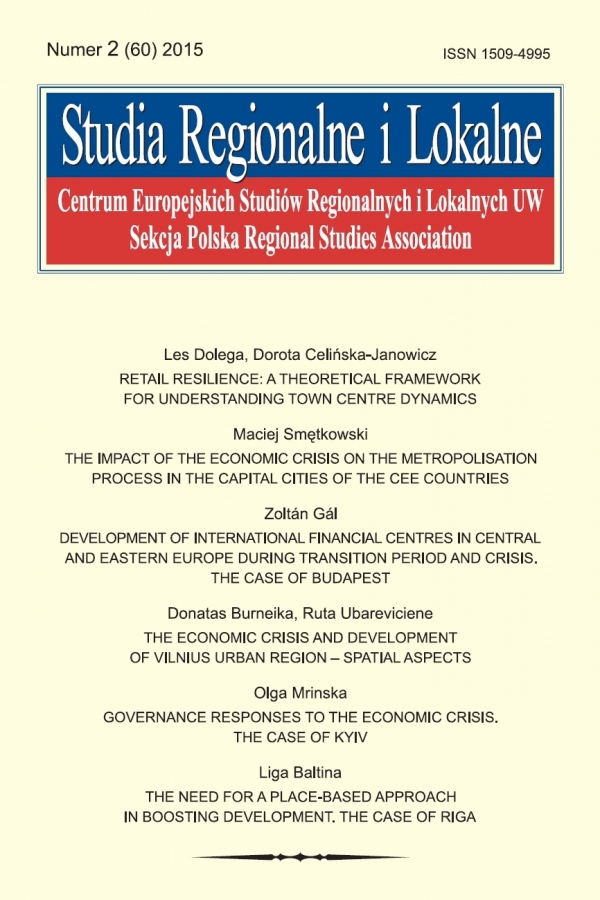Issue:
2(60)/2015
Olga Mrinska
Governance responses to the economic crisis. The case of Kyiv
DOI: 10.7366/1509499526005
Zarządzanie w okresie kryzysu gospodarczego. Przykład Kijowa
Artykuł analizuje zmiany w systemie zarządzania Kijowem w latach 2008–2014. Konsekwencje kryzysu gospodarczego i bieżący kryzys we wschodniej Ukrainie wymagają nowego podejścia i nowych rozwiązań w dziedzinie przywództwa i zarządzania lokalną społecznością. Przez wiele lat słabość lokalnych władz w Kijowie w połączeniu z niezwykle silną kontrolą rządu centralnego uniemożliwiała wykształcenie przez gospodarkę miasta odporności na negatywne zjawiska związane z globalnym kryzysem gospodarczym. Nie przeszkodziło to jednak w upowszechnieniu się nowych form inicjatyw społecznych, które łączą podmioty prywatne i pozarządowe. Obrany przez władze krajowe na Ukrainie kierunek rozwoju zakładający decentralizację państwa tworzy nowe możliwości wykorzystania społecznego potencjału miasta. Wyzwaniem jest znalezienie sposobu na konstruktywną współpracę między formalnymi i nieformalnymi liderami, która powinna stworzyć podstawę trwałego i konkurencyjnego wzrostu gospodarczego.
Governance responses to the economic crisis. The case of Kyiv
This paper analyses the shifts in the system of governance of Kyiv in 2008–2014 as a crucial element of the resilience capacity of the region. The consequences of the economic crisis and the ongoing security crisis demand new approaches and solutions from the city’s leadership and community. For years Kyiv suffered from poor municipal leadership and unprecedented control by the central government, which undermined the resilience of its socio-economic system in the aftermath of the global economic crisis. However, new forms of community initiatives that bring together private and non-governmental actors are becoming widespread, and are becoming critical knowledge networks that are essential for successful long-term development. Changing institutional frameworks, and the firm commitment to decentralisation proclaimed by the country’s current leadership, open new avenues for harnessing the city’s potential. The challenge is in finding ways for constructive collaboration between formal and informal leaders of the city while building a new base for sustainable and competitive economic growth.
Affiliation:
Olga Mrinska: Policy consultant at European Bank for Reconstruction and Development. Home address: St. The Moors 2, Welwyn Garden City, Hertfordshire, AL71QR, UK;
omrinska@gmail.com 


